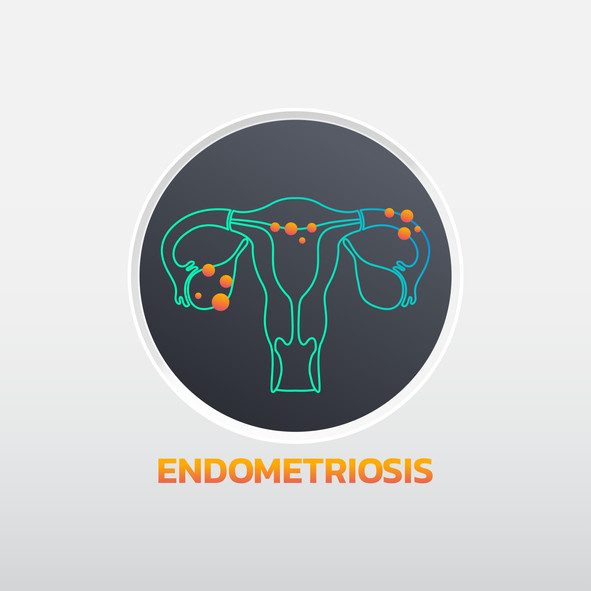
Tips to leverage neuroplasticity to maintain cognitive fitness as you age

Can white noise really help you sleep better?

Celiac disease: Exploring four myths

What is prostatitis and how is it treated?

What is Cushing syndrome?

Exercises to relieve joint pain

Think your child has ADHD? What your pediatrician can do

Foam roller: Could you benefit from this massage tool?

Stepping up activity if winter slowed you down

Common causes of cloudy urine
Stress Archive
Articles
Obesity is still on the rise among American adults
Research we're watching
American adults are gaining weight, according to data from the CDC. Twelve U.S. states now have obesity rates of 35% or higher, compared with just six states in 2017 and nine states in 2018. Experts say the trend is particularly concerning because adults with obesity are more prone to severe outcomes from COVID-19.
According to the CDC report, racial and ethnic minority groups are disproportionately affected by obesity. Prevalence rates nationwide were
Unlocking the mystery of chronic pelvic pain syndrome
The condition is an all-too-real problem for men, and one of the more difficult to treat.
After age 50, men often have periods of discomfort "down there." It could be a cramping, aching, or throbbing pain in and around your pelvis and genitals. You also may have issues in the bedroom and bathroom. While the problems are real, the cause is often difficult to pinpoint.
It's called chronic pelvic pain syndrome (CPPS) — also known as chronic prostatitis — and it's one of the most puzzling and difficult-to-manage conditions for older men.
How to avoid a relapse when things seem out of control
This year has been extremely stressful for everyone, and that stress can lead to harmful habits. For those working to stay in recovery from an addiction, the challenge is even more profound. Those in this situation know that the more stressful things are, the more important it is to practice the healthy habits that sustain recovery.
Treating the pain of endometriosis
Endometriosis occurs in women when tissue similar to the lining of the uterus grows in other places in the body, most commonly within the pelvis, causing pain and other symptoms. Many women with this condition are not diagnosed properly until middle age. There are several options for treatment, and it may take time to find what works best for each person.
Stress-induced brain activity linked to chest pain from heart disease
Research we're watching
Doctors have long known that mental or psychological stress can lead to angina (chest pain or discomfort caused by inadequate blood to the heart). Now, new research reveals a direct correlation between angina and stress-related activity in the brain's frontal lobe. The study included 148 people with coronary artery disease with an average age of 62. All underwent brain and heart imaging tests done in conjunction with mental stress testing, which involved mental arithmetic and public speaking. Imaging tests were also done under "control" conditions, which featured simple counting and recalling a neutral event. Researchers monitored the participants for angina during the tests; they also assessed angina rates again after two years.
Activity in the inferior frontal lobe area of the brain during mental stress was linked to the severity of self-reported angina, both during the brain imaging and at the two-year follow-up. A better understanding of how the brain reacts to stress may be an important consideration for doctors who treat angina, according to the study's lead author. The study was published online Aug. 10, 2020, by the journal Circulation: Cardiovascular Imaging.
Stress and the heart: Lessons from the pandemic
Doctors have begun to study the effects of COVID-related stress and anxiety on people. A recent study suggests that stress caused by the pandemic may already be affecting heart health.
Stop counting calories
Put the focus on food quality and healthy lifestyle practices to attain a healthy weight.
Most people have been taught that losing weight is a matter of simple math. Cut calories — specifically 3,500 calories, and you'll lose a pound. But as it turns out, experts are learning that this decades-old strategy is actually pretty misguided.
"This idea of 'a calorie in and a calorie out' when it comes to weight loss is not only antiquated, it's just wrong," says Dr. Fatima Cody Stanford, an obesity specialist and assistant professor of medicine and pediatrics at Harvard Medical School.
Worries on your mind
People who regularly worried about the future and dwelled on the past saw larger drops in cognition and had more harmful brain proteins than those who didn't.
Chronic worrying or ruminating could be bad for your brain. A study published online June 7, 2020, by Alzheimer's & Dementia linked these negative thinking patterns to brain changes that could be associated with Alzheimer's disease.
Study authors found that older adults who regularly engaged in what the authors called repetitive negative thinking were more likely to experience cognitive decline, including memory problems, than those who didn't. They also had higher levels of the proteins beta-amyloid and tau in their brains. The accumulation of these proteins, which create damaging clumps known as plaques and tangles in the brain, is a hallmark of Alzheimer's that begins in the earliest stages of the disease — even before an individual experiences visible symptoms of dementia.
Tips to defuse a meltdown
Shifting your thinking and practicing deep breathing can help when you're stuck in an intense emotional moment.
At some point, we've all gotten stuck in a "meltdown" moment — an overwhelming feeling of anger or stress that was difficult to shake off. "Feeling overwhelmed makes it harder to identify ways to get unstuck; the options seem limited, which can create a sense of hopelessness or despair. Additionally, negative memories may come to mind more readily, and we may filter out useful ways of viewing the situation at hand," says Abby Altman, an associate psychologist at Harvard-affiliated Brigham and Women's Hospital.
But there are ways to shift your focus and break out of extremely emotional moments. Take note of the following tips so you can put them to work if a meltdown strikes.

Tips to leverage neuroplasticity to maintain cognitive fitness as you age

Can white noise really help you sleep better?

Celiac disease: Exploring four myths

What is prostatitis and how is it treated?

What is Cushing syndrome?

Exercises to relieve joint pain

Think your child has ADHD? What your pediatrician can do

Foam roller: Could you benefit from this massage tool?

Stepping up activity if winter slowed you down

Common causes of cloudy urine
Free Healthbeat Signup
Get the latest in health news delivered to your inbox!
Sign Up











